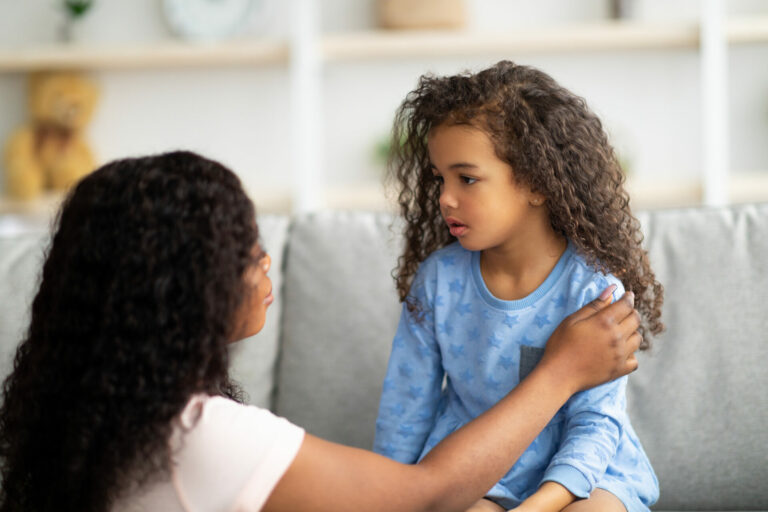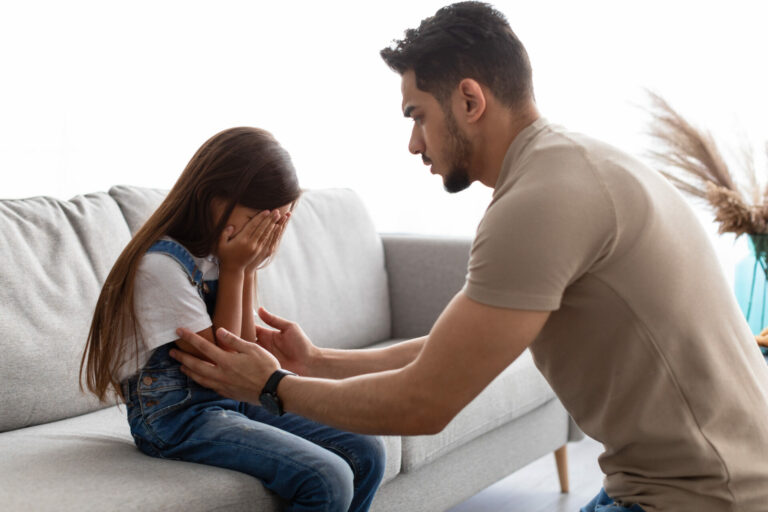Grief is a major part of the adoptive process. Birth mothers grieve the loss of the children they supported in their own bodies. Birth fathers grieve the loss of raising their children. Adopted children grieve the loss of their first parents, and the many things that go with those losses including culture, identity, and so much more. And yes, adoptive parents grieve, too.
Adoptive parents choose to love a child that is not biologically theirs. As that love grows, they often grieve the years they did not have with their children. They grieve the ability to rock and soothe their child as a baby. They grieve time to attach to and care for their child at early ages. They grieve because they want the best for their child and are unable to go back and give to their child what they see the child needed (Rehman, n.d.). They grieve because they love.
Adoptive parents may also grieve specific things. They may grieve not having had the opportunities to observe life milestones like walking, talking, birthdays, and graduations (Nebraska Children’s Home Society, 2023). They may grieve that they will always be “second” parents, when they love their child so much they would have liked to have been there from the beginning (Grow, 2022). They grieve gaps they cannot fill for children, for example family history or photos (Sanders, n.d.). They grieve because they recognize their child’s pain and are unable to alleviate it.
Adoptive parent grief does not discount birth parent or adoptive child grief. It just acknowledges that adoptive parents, too, have losses through which they also need to work. Just as adoption is a process, so also, grief is a process. It’s a thing, a thing to be reckoned with, and also a thing that can build empathy and relationship, if parents choose to let it.
Grief is a major part of the adoptive process. Birth mothers grieve the loss of the children they supported in their own bodies. Birth fathers grieve the loss of raising their children. Adopted children grieve the loss of their first parents, and the many things that go with those losses including culture, identity, and so much more. And yes, adoptive parents grieve, too.
Adoptive parents choose to love a child that is not biologically theirs. As that love grows, they often grieve the years they did not have with their children. They grieve the ability to rock and soothe their child as a baby. They grieve time to attach to and care for their child at early ages. They grieve because they want the best for their child and are unable to go back and give to their child what they see the child needed (Rehman, n.d.). They grieve because they love.
Adoptive parents may also grieve specific things. They may grieve not having had the opportunities to observe life milestones like walking, talking, birthdays, and graduations (Nebraska Children’s Home Society, 2023). They may grieve that they will always be “second” parents, when they love their child so much they would have liked to have been there from the beginning (Grow, 2022). They grieve gaps they cannot fill for children, for example family history or photos (Sanders, n.d.). They grieve because they recognize their child’s pain and are unable to alleviate it.
Adoptive parent grief does not discount birth parent or adoptive child grief. It just acknowledges that adoptive parents, too, have losses through which they also need to work. Just as adoption is a process, so also, grief is a process. It’s a thing, a thing to be reckoned with, and also a thing that can build empathy and relationship, if parents choose to let it.
References
Grow, E. (2022, October 3). ‘I know I’ll always be second.’: Adoptive mom shares grief and loss behind kids’ international, foster care adoptions. Love What Matters. https://www.lovewhatmatters.com/international-foster-care-adoptions-grief-trauma/
Nebraska Children’s Home Society. (2023, January 12). Common long-term issues faced by adoptive families and how to solve them. https://blog.nchs.org/adoptive-families-challenges
Rehman, A. (n.d.). Grieving relationships we didn’t have. Grief Recovery Center. https://www.griefrecoveryhouston.com/grieving-relationships-we-didnt-have/
Sanders, K. (n.d.). A past without pictures. Adoptive Families. https://www.adoptivefamilies.com/openness/older-child-adoption-no-baby-photos/
References
Grow, E. (2022, October 3). ‘I know I’ll always be second.’: Adoptive mom shares grief and loss behind kids’ international, foster care adoptions. Love What Matters. https://www.lovewhatmatters.com/ international-foster-care-adoptions-grief-trauma/
Nebraska Children’s Home Society. (2023, January 12). Common long-term issues faced by adoptive families and how to solve them. https://blog.nchs.org/adoptive-families-challenges
Rehman, A. (n.d.). Grieving relationships we didn’t have. Grief Recovery Center. https://www.griefrecoveryhouston.com/ grieving-relationships-we-didnt-have/
Sanders, K. (n.d.). A past without pictures. Adoptive Families. https://www.adoptivefamilies.com/ openness/older-child-adoption-no-baby-photos/




